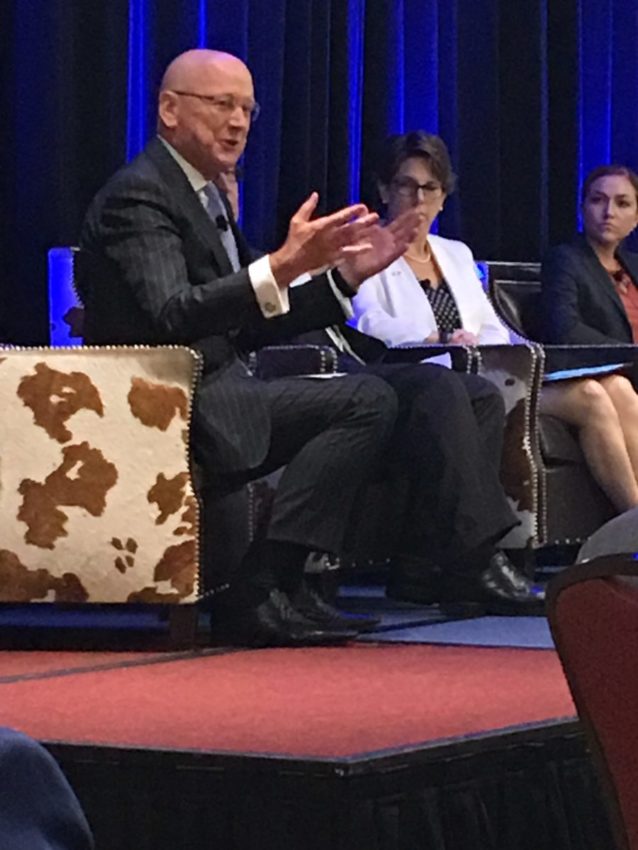
UT Health San Antonio President William L. Henrich, M.D., MACP, served as a panelist Sept. 24 at a luncheon celebrating the South Texas Medical Center’s first 50 years and looking forward to the next 50.
In answer to questions from panel moderator Robert Rivard, Dr. Henrich mentioned collaborative partnerships that are developing among San Antonio institutions, the city’s need for innovation and talent, and the necessity to find new and stable ways of funding research and graduate medical education.
“The foundation for the future in all that we do is to be an innovative city, and to do that, it is all about the science,” Dr. Henrich said.
He said a consortium formed by UT Health San Antonio, Texas Biomedical Research Institute, Southwest Research Institute and The University of Texas at San Antonio will “bring scientists of all walks of the city’s scientific structure together, and is important to do.”
The science conducted at each institution is complementary, he said. The consortium will establish a fund to support projects that are undertaken jointly by at least two of the consortium members.
On the national level, he said the largest challenge today is the “somewhat episodic nature of peer-reviewed funding for research. … We need a solid, definitive way to guarantee funding as we head into the future, or we will discourage people from going into science.”
Texas is home to new allopathic and osteopathic medical schools, Dr. Henrich said. The number of graduating medical students is therefore growing, but graduate medical education training positions in Texas are not increasing at the same rate, Dr. Henrich said. “The gap gets wider every year,” he said.
There is a 60 percent chance that medical residents will stay in the city or state where they trained. To avoid exporting an increasing number of medical graduates to other states, Texas must find a way to fund new residency slots, Dr. Henrich said.

